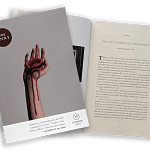Reading List:
Oh, Mr Hitchens! by Laura Kipnis
The Journalist and the Editor, by Laura Kipnis
Sexual Paranoia Strikes Academe, Laura Kipnis
My Title IX Inquisition, by Laura Kipnis
Christopher Hitchens' last years: Islam, the Iraq war and how a man of the left found his moment by breaking with the left, by Daniel Oppenheimer
My guest on the show today is Laura Kipnis. Laura is a cultural critic and essayist whose work focuses on sexual politics, aesthetics, shame, emotion, acting out, moral messiness, and various other crevices of the American psyche. She is the author of, among other books, Unwanted Advances: Sexual Paranoia Comes to Campus; Men: Notes from an Ongoing Investigation; How to Become A Scandal; Against Love: A Polemic; The Female Thing: Dirt, Sex, Envy, Vulnerability; and Bound and Gagged: Pornography and the Politics of Fantasy in America–have been translated into fifteen languages. Her latest book, just out this past year, is Love in the Time of Contagion: A Diagnosis.
I’ve admired Laura’s writing for many years, but the specific reason I was prompted to invite her on the show today were two essays of very recent vintage. One was a review, for Bookforum, of the last book by Janet Malcolm, which was published after her death. And a short essay for Critical Quarterly on Christopher Hitchens that had the lovely title, “Oh, Mr. Hitchens!”
These essays resonated with me both on their own terms and because Janet Malcolm and Christopher Hitchens were—are—profoundly important to me. In very different ways I think they provided templates of what kind of things I might want to do as a writer. I also just loved reading them, and think my understanding of the world has been shaped by them. And Laura kind of got them.
The Hitchens piece, in particular, captured something about the man that I’ve seen captured by no one else. Take this passage, for instance, in which Laura is recounting an evening when she was drinking with Hitchens, before he was scheduled to give a talk at Northwestern. They get on the subject of Bill Clinton:
Something about Bill Clinton's sex life seemed to derange him. He was off the rails on the subject, literally sputtering. I tried to put it to him that he seemed, well, overinvested. It seemed way too personal, somehow off. What was it about Bill Clinton that had this unhinging effect on him? (I was kind of drunk at that point myself.) I suppose I expected him to at least pretend to ponder the question, devote maybe a few seconds to a show of self-examination. Anyone would. Not him. He was barricaded against anything I could say, also against the ‘what is this “about” for you’ sort of conversation that drunk people are known to have, which is one of the fun things about drinking, Something obdurate and hardened switched on instead. Thinking was not what was taking place, just pre-rehearsed lines and a lot of outrage.
This is exceptional writing. It’s also very perceptive about Hitchens in a way that sidesteps so many of the posthumous takes on Hitchens, which tend to divide far too cleanly between those who like or dislike his late politics. The problem with late Hitchens wasn’t that his politics changed, but that his thinking got more rigid and therefore writing got worse.
Laura and I talk about Hitch, Malcolm, her own backstory as a writer, and more.
















Share this post